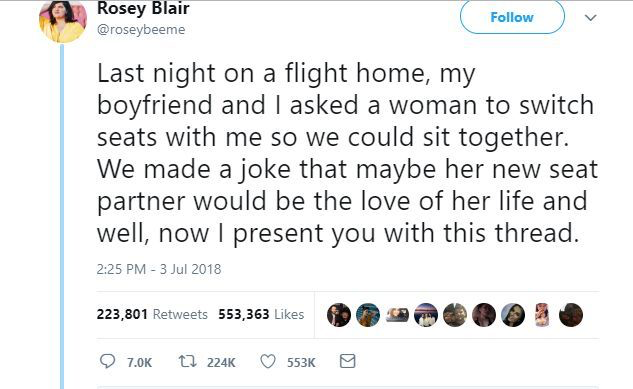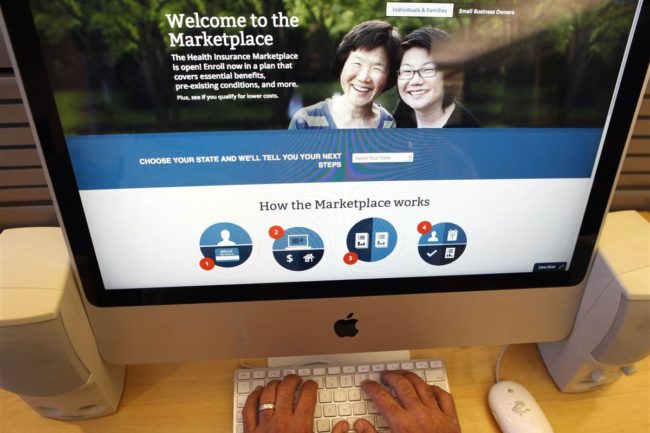
Less than 3 days after being re-elected as House Speaker, Speaker Paul Ryan announced that Republicans’ chief priority this session would be to repeal the Affordable Care Act (or, “Obamacare”), a signature healthcare reform bill of the Obama administration that has enabled more than 20 million previously uninsured Americans to obtain healthcare coverage. Furthermore, Obamacare enjoys particular popularity – and above-average use – among Asian Americans and Pacific Islanders (AAPI).
Many political commentators have weighed in to discuss the devastating impact of an Obamacare repeal on Americans; none have considered the specific impact of Obamacare’s elimination on the AAPI community.
It turns out that if Republicans are successful in passing legislation to dismantle Obamacare, approximately 1 in 15 Asian Americans and Pacific Islanders would lose their healthcare coverage, and millions more would love access to mental health care, reproductive health care, and a vast array of preventative care.
As outlined in this post by writer Charles Gaba (who has been specifically tracking public health care policy since 2013), the Affordable Care Act enables uninsured Americans to receive healthcare coverage by the following four mechanisms:
- Creation of Public ACA Exchanges: Americans shop for and directly purchase their health insurance through newly-created Public ACA Exchanges (or, Health Insurance Marketplace). These exchanges lower health insurance premiums so that they are affordable for those who do not receive health insurance from their employers.
- Expansion of Medicaid / CHIP: In 38 states, state governments have accepted federal ACA funds to expand pre-existing Medicaid / Children’s Health Insurance Program (CHIP) so that more low-income families and children can access healthcare services under the program.
- Young Adult Provision: A popular feature of the Affordable Care Act is its provision allowing young Americans aged 19-25 years old to remain on their parents’ insurance programs. Prior to the passage of Obamacare, young Americans were frequently dropped from their parents’ health insurance plans after they turned 18 years old.
- Basic Health Program (BHP) in Minnesota and New York: Obamacare allows states to create a separate healthcare coverage program specifically to provide affordable healthcare options for low-income Americans who earn just enough income to no longer qualify for Medicaid, but who do not earn enough to purchase healthcare through the ACA Health Insurance Marketplace. So far, two states – Minnesota and New York – have created a state BHP.
Using some back-of-the-envelope math, Gaba estimates that a full repeal of Obamacare would result in ~23 million Americans losing their health care coverage.
But what would be the effect of full repeal of Obamacare on AAPIs?
In this post, I show that an estimated 1.2 million Asian Americans and Pacific islanders – or, 1 in 15 of all AAPI – will lose healthcare coverage if Obamacare is repealed.
AAPIs Have a Favourable Opinion of the Affordable Care Act
A large number of AAPIs are in favour of the Affordable Care Act. Compared to 36% of Whites, 50% of Asian Americans and 37% of Pacific Islanders report a favourable opinion of Obamacare (according to AAPIData).
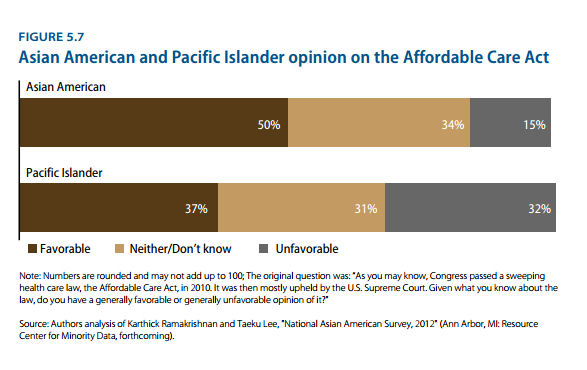
One reason for this net favourability might be that AAPIs are “early adopters” of Obamacare: AAPIs obtained healthcare via the Affordable Care Act at disproportionately high rates relative to our overall population. Prior to the passage of the Affordable Care Act, ~20% of AAPI were uninsured – and uninsurance rates are even higher among some AAPIs, including Tongan Americans (26%), Korean Americans (25%) and Pakistani Americans (23%).
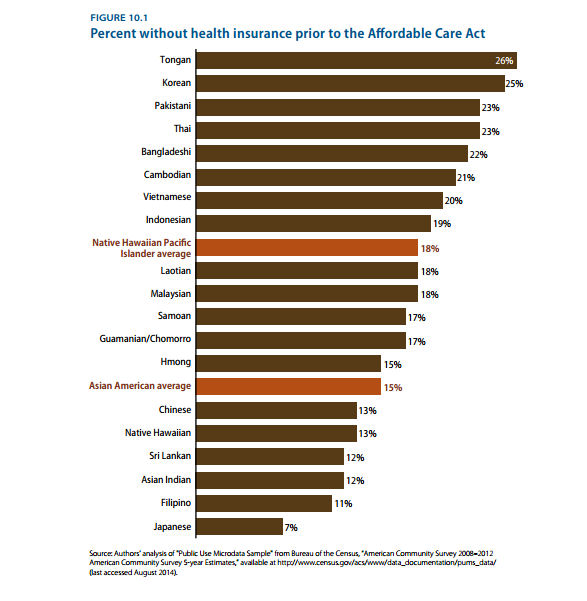
After implementation of the Affordable Care Act, the uninsurance rate among AAPIs has more than halved – dropping from ~18% to 7.3%.
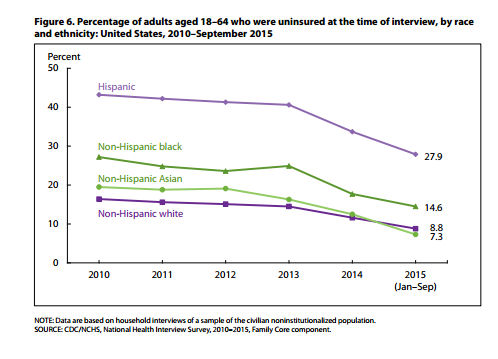
AAPIs and the Public Exchanges
AAPI purchased healthcare coverage through ACA-mediated state-wide public exchanges at a higher rate than our share of uninsured Americans. Whereas 5.6% of the uninsured are AAPI, by 2016 we were 9% of those who bought health insurance on the individual markets.
According to the Department of Health and Human Services, as of 2016, 537,269 Asian Americans and Native Hawaiian/Pacific Islanders now purchase their healthcare coverage on the state exchanges created by the Affordable Care Act – and all can expect to lose their coverage if Obamacare is repealed.
Medicaid / CHIP
The AAPI poverty rate is currently ~12%, but significantly higher among certain AAPI ethnic groups. 15% of AAPI receive healthcare coverage through Medicaid, and that number has only increased with the recent Medicaid/CHIP expansion which allowed more low-income families to qualify for Medicaid assistance. AAPI Medicaid recipients are also more likely to be women.
Unlike the data associated with the state exchanges, race/ethnicity data for Medicaid recipients are a little harder to come by. Using Charles Gaba’s method, I estimated the number of Medicaid recipients who have qualified for Medicaid / CHIP thanks to recent ACA expansions. I then estimated the number of those Expansion-related enrollees who are AAPI, using data from the Kaiser Family Foundation. (The KFF reports an aggregated ‘Other’ race/ethnicity category, which includes AAPI, AIAN, and multiracial people; using the Census, I estimated that 60% of those who are aggregated in the ‘Other’ category are AAPI.)
Using this ‘back-of-the-envelope’ math, I calculated that ~550,000 AAPI receive healthcare coverage under Medicaid / CHIP, specifically due to the ACA’s expansion of these programs in 38 states. All stand to lose coverage if Obamacare is repealed.
Young Adult Provision
One of the most popular provisions of Obamacare is its provision to permit young adults aged 19-25 to remain on their parents’ health insurance. The Department of Health and Human Services reports that 121,000 AAPI youth are currently covered thanks to this provision.
Basic Health Programs in New York and Minnesota
Again, unlike other data sources, race and ethnicity data are hard to come by with regard to enrollment in New York and Minnesota’s BHP. Using total enrollment numbers from Medicaid.gov, and using Census numbers to estimate the distribution of AAPI in each state, I estimated that ~38,000 AAPI currently receive healthcare through these BHP.
Conclusion
When you tally the number of AAPI who receive healthcare in all four categories, you find that 1.2 million AAPI currently receive healthcare coverage due to provisions outlined in the Affordable Care Act. This translates to 1 in 15 of all AAPIs who will lose healthcare access with full repeal of Obamacare.
Counterintuitively, the outlook is more dire if Republicans succeed in a partial repeal of Obamacare. The Urban Institute estimates that if Republicans are successful in their plan to eliminate unpopular elements of Obamacare (such as the state exchanges, or the healthcare coverage mandate) but keep other aspects that are generally popular (such as the young adult provision), they would drive premiums up so much that more Americans – and by extension, more AAPI — would be priced out of their healthcare coverage.
Of course, all of this presents just part of the picture. There are million more Americans, and millions more AAPI, who would lose important benefits if Obamacare is repealed. The Department of Health and Human Services estimates that 4.3 million AAPI currently have access to preventative care without cost-sharing, and 5.5 million AAPI no longer have lifetime healthcare coverage limits, due to the ACA. 2.5 million AAPI women now have access to crucial women’s health services without cost-sharing.
Meanwhile, Speaker Paul Ryan has stated unequivocally that any dismantling of Obamacare would also include a total defunding of Planned Parenthood, a crucial source of reproductive health services for the AAPI community.
Act Now
As AAPI, we need to take a stand against Republican efforts to dismantle the Affordable Care Act. Here are some ways you can get involved:
- Sign this petition at BarackObama.com, demanding that Republicans cease their efforts to dismantle Obamacare.
- Participate in this phone survey being conducted by Speaker Ryan’s office.
- Contact your elected officials by phone or email, telling them that they should work to oppose efforts to repeal Obamacare.
- Contact members of the Congressional Asian Pacific American Caucus, demanding that they issue a statement outlining how Obamacare helps the AAPI community, and that they condemn Republican efforts to repeal it.

